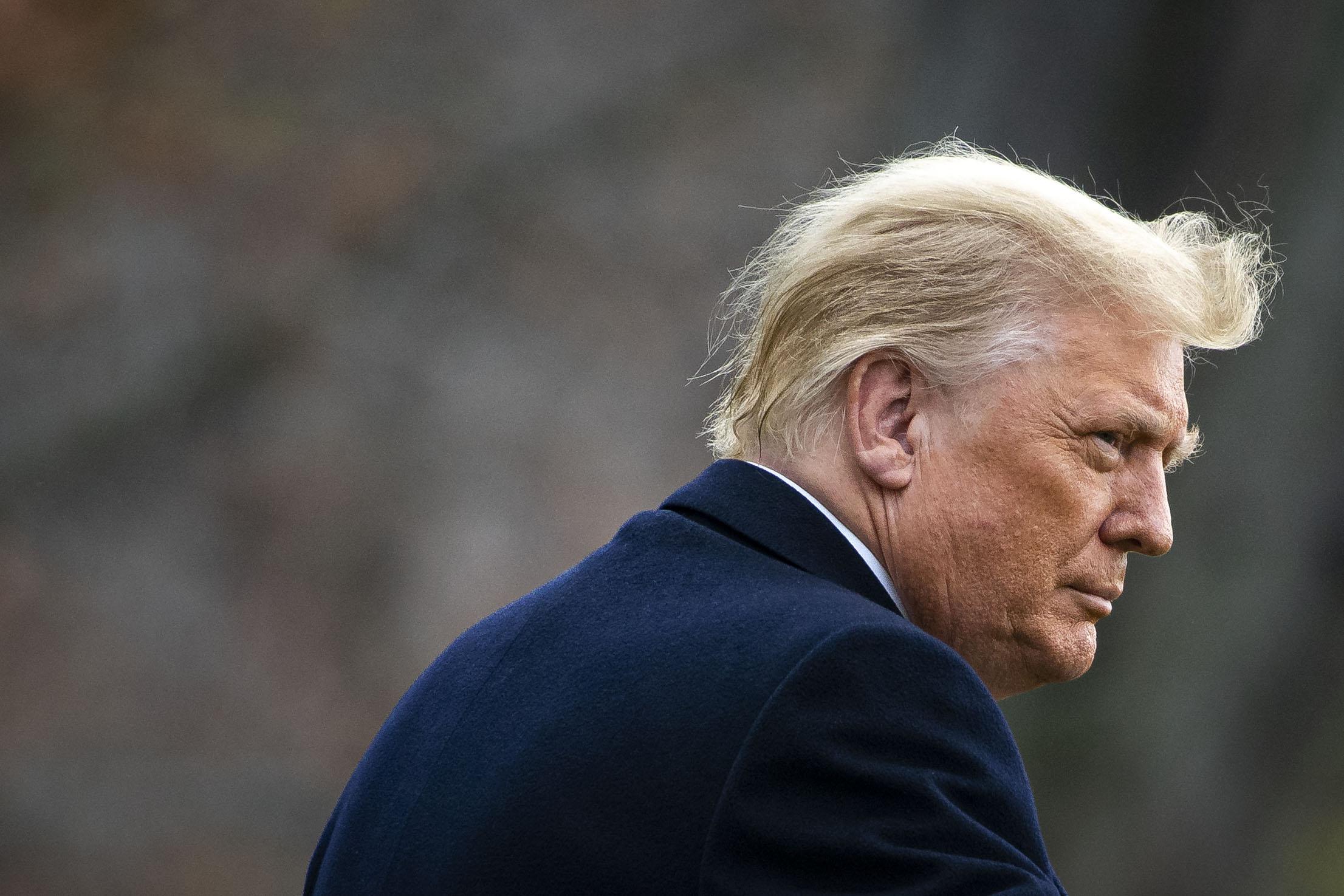Forsaken by the Supreme Court and defeated in the Electoral College, President Donald Trump has seized on a new basis for overturning the 2020 election: public opinion. On Tuesday night, he tweeted, “Poll: 92% of Republican Voters think the election was rigged!” The number was bogus, but there’s a deeper reason to reject Trump’s argument: It’s circular. For weeks, the president and his allies have been spreading lies about election fraud. Now, having manufactured distrust among Republican voters, they’re spinning that distrust as a basis to throw out the election.
Every fact-finding body has rejected Trump’s lies. He’s been stiffed by Trump-appointed judges, Trump-endorsed governors, pro-Trump election officials, and Republican state legislators. But in the court of public opinion, he has found an audience. In polls taken last month, 59 percent of Republicans attributed Trump’s defeat to “illegal voting or election rigging,” 74 percent blamed it on “voter fraud” or insisted it would be overturned, and 67 percent said Trump had actually won. These numbers are much worse than the distrust measured in previous elections, even in years when the margin was closer.
Why do so many Republicans believe this nonsense? Because they’ve ingested it from the president and his surrogates. In polls, 60 percent to 75 percent of Republicans say they’ve heard or read about fraud allegations and election challenges by Trump’s lawyers, his supporters in Congress, or state and local Republican officials. Republican respondents endorse specific lies told by Trump and his team: that “mail ballots are being manipulated to favor Joe Biden,” that “a lot of dead people and people who moved cast mail-in ballots,” and that “illegal immigrants voted fraudulently in 2016 and tried again in 2020.”
You can track the success of Trump’s propaganda in sequential surveys by reputable pollsters. A week after the election, Navigator Research found that 71 percent of independents were confident that the results would be “counted correctly and fairly,” but 54 percent of Republicans weren’t. Over the next month, independents didn’t budge: In a follow-up Navigator survey released on Wednesday, 71 percent of them remained confident that the results had been counted fairly. Republicans, however, shifted considerably. By this week, 74 percent of them—a 20-point increase—said they weren’t confident that ballots had been properly counted. Only one in four independents said “Trump’s claims about voter fraud” were “justified by evidence,” but three in four Republicans said his claims were justified.
Economist/YouGov polls have documented a similar split, this time with Republicans holding steady. From mid-November to mid-December, the percentage of independents who distrusted the election (expressing little or no confidence that it “was held fairly”) gradually declined from 46 percent to 33 percent. The percentage who said there was “enough fraud to change who won the election” fell from 46 percent to 25 percent. But the percentage of Republicans who distrusted the results and who said there was enough fraud to change the outcome held firm at around 75 percent. Because YouGov started out with higher Republican distrust than Navigator did, the 75 percent doesn’t show up as an increase. But the divergence is similar: Over the course of a month, as independents accepted the election and Republicans didn’t, the gap between them widened by about 20 points.
This divergence has produced dangerous levels of Republican disbelief. In polls taken this month by Marist College, Quinnipiac University, and Fox News, 77 percent of Republicans said there was “widespread voter fraud,” 72 percent said they didn’t trust the results, 68 percent said the election “was stolen” from Trump, and 70 percent said Biden’s victory was “not legitimate.” Even in a YouGov survey taken from Sunday to Tuesday—in part, after the Electoral College had voted on Monday—nearly two-thirds of Republicans still said Trump shouldn’t “concede the election.”
Having stoked this distrust, the president and his allies are now exploiting it. They argue that the fraud must be real since so many people believe in it, and that even if it can’t be proved, widespread disbelief in the results makes the election illegitimate. On Fox News, Republican poll numbers have become a routine substitute for evidence. Trump points to them as proof that “the election was rigged.” His campaign advisers, including Lara Trump, also cite these numbers. Last week, Sen. Ted Cruz said the Supreme Court should intervene because “39 percent of Americans right now believe this last election was rigged.” In Georgia, Sen. Kelly Loeffler demanded that the secretary of state resign because “Georgians have lost faith in our elections.” House Minority Whip Steve Scalise, noting the “distrust” felt by “millions of people,” refused to say that Trump should accept the verdict of the Electoral College.
On Wednesday, Kayleigh McEnany, Trump’s half-campaign-spokeswoman-half-White-House-press-secretary, went on Fox to denounce “an election that half of the country does not have faith in.” Republican Congresswoman-elect Kat Cammack announced that she and her colleagues were demanding a House investigation of the election because “people don’t have confidence” in the results. Meanwhile, Sen. Ron Johnson convened a hearing on “fraudulent votes,” “ballot stuffing,” and “corruption of voting machines.” The hearing was necessary, he declared, because “a large percentage of the American public does not believe the November election results are legitimate.”
Every election has some error, fraud, or voter suppression. In rare cases, you can end up fighting over ambiguous marks on a few ballots. The Trump-Biden race wasn’t one of those elections. It wasn’t close, and the errors were no bigger than usual, so they didn’t affect the outcome. The reason why so many Republican voters think this election was “stolen” is that Trump and his propagandists have been spreading that lie for weeks, and they’re still spreading it. Now the liars want to be rewarded.
